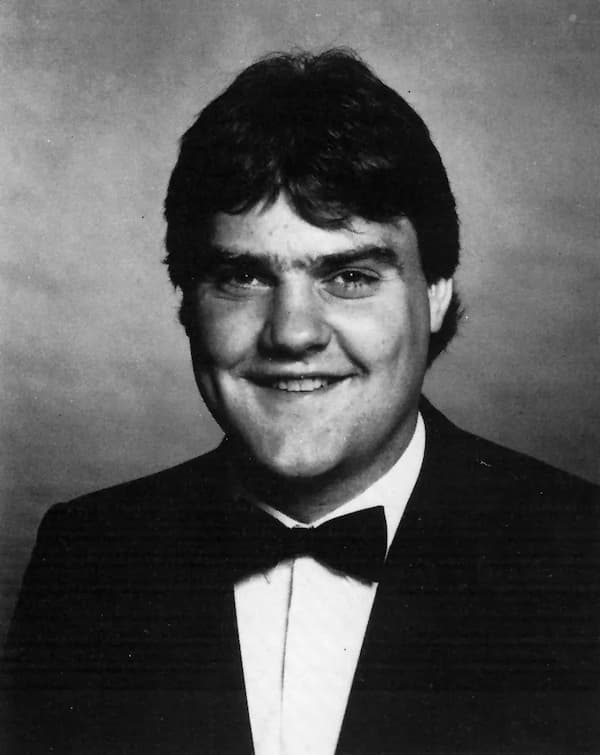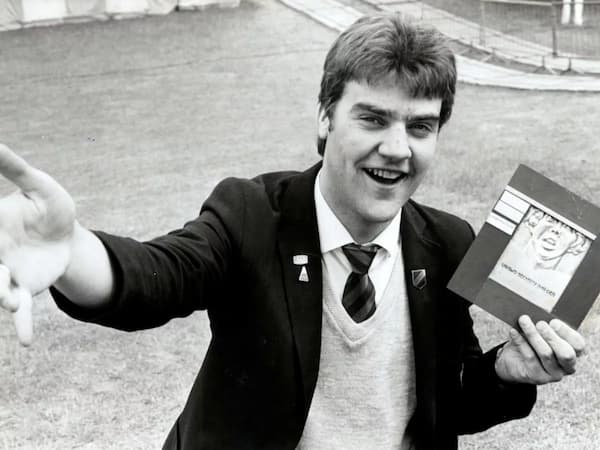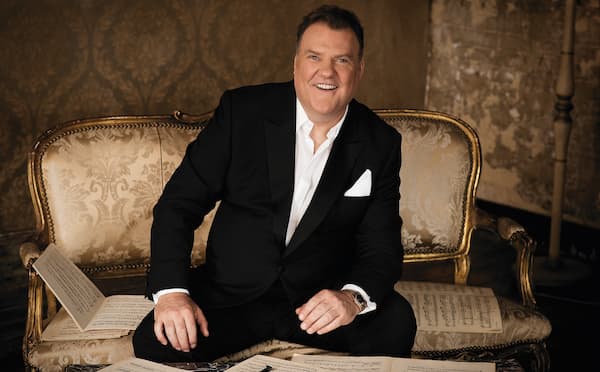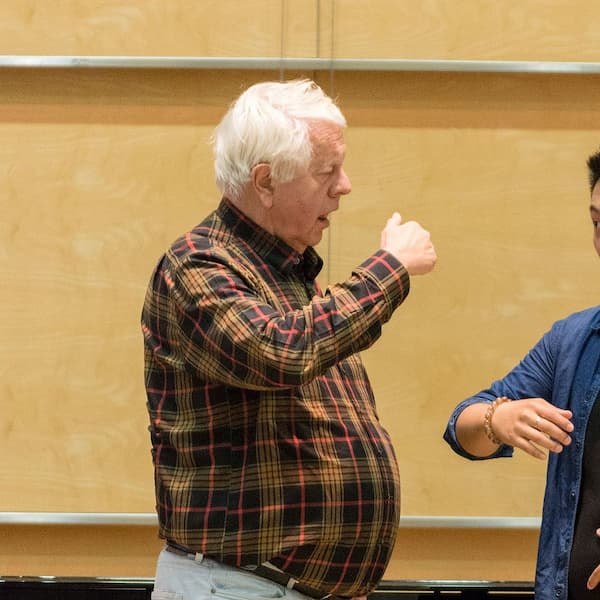Widely considered “a force of nature,” Welsh bass-baritone Bryn Terfel has a rich, warm, vibrant voice that is capable of expressive pianissimos as well as roaring fortissimos. Highly analytical in his interpretations as well as in his vocal technique, “Terfel has the rare gift of translating intensive preparation into spontaneous expression.” Winning the Lieder prize at the highly visible “Singer of the World” competition in 1989 ignited a career that saw him knighted for services to music in 2017.
Bryn Terfel Sings Mozart’s The Marriage of Figaro, “Non più andrai” (BBC Cardiff Singer of the World 1989)
Welsh Countryside

The young Bryn Terfel
Bryn Terfel Jones was born on 9 November 1965 in Pantglas, Caernarfonshire, Wales. The son of a sheep and cattle farmer, he grew up on a farm in Snowdonia with his brother and music-loving parents. Both his father and mother sang in church choirs, and young Bryn quickly followed in their footsteps. As he recalls, “It was just part of village life. It was something that brought people together and we simply enjoyed ourselves.”
As Bryn explained in an interview, “I grew up in the countryside, surrounded by animals and close to the soil. Music is quite essential for me as the environment and the landscape where I spent my childhood are. Since I was a child I was in touch with Welsh folklore and step by step.” He took piano lessons, tried his hands at the trumpet, clarinet, and the guitar and regularly sang in local Welsh singing contests.
Richard Strauss: Scene 3: Wird dir nicht bange, Tochter der Herodias? (Bryn Terfel, bass-baritone; Catherine Malfitano, soprano; Vienna Philharmonic Orchestra; Christoph von Dohnányi, cond.)
Eisteddfod

Bryn Terfel
For Terfel, the beauty of Welsh music stems from the long tradition of Eisteddfod. It is a poetry and music festival and institution established in 1176, one that features several ranked competitions. As Terfel explains, “This tradition has codes and conventions where one can sing folk tunes, tunes with a harp, sing in duets, trios, quartets, and choirs, both male and female and mixed. What a recipe for nurturing talent and professionalism on the stage with its hard work and dedication.”
Terfel is proud to be the son of the Eisteddfod, “and without it I would be a Welsh hill farmer.” His parents would drive young Bryn tirelessly around the country for him to compete in local Eisteddfod every August. Whenever he won one of the money prizes, he would usually use the money to buy sports related equipment.
Bryn Terfel Sings Schubert’s “Auf dem Wasser zu singen”
Towards London

Bryn Terfel
Although Terfel had extensive singing experience in his youth, opera was clearly not part of his early training. Instead, his musical interests centred on pop and rock. According to Terfel, his favourites were “Elvis Presley, Dire Straits, Pink Floyd and Queen.” Popular music was of huge importance, and “if someone had asked me who Pavarotti was when I was 16, I couldn’t have told them.”
However, a local teacher insisted that Bryn should go to London and audition for the Guildhall School of Music and Drama. For the teenager, going to London was “like a culture shock.” However, he was not only accepted at Guildhall, he was immediately awarded a scholarship.
Frederick Keel: 3 Salt-Water Ballads (Bryn Terfel, bass-baritone; Malcolm Martineau, piano)
Rudolf Piernay

Rudolf Piernay
Bryn immersed himself into London’s culture and saw his first opera, the Zeffirelli production of Otello at the Royal Opera House. He devoured scores and recordings, and he took masterclasses with Robert Tear, Rolfe Johnson and Ben Luxon doing English, German and French songs, and with Emma Kirkby on Handel. He studied voice with Arthur Reckless and Rudolf Piernay.
Bryn studied voice with Piernay for 10 years, and he considers him “a superb pianist, conductor, linguist, and a great singing teacher. He knows my voice and has looked after its development.” Terfel won the Kathleen Ferrier Memorial Award in 1988, and by the early 1990s he was already established in a professional singing career. He was named Gramophone “Young Singer of the Year” in 1992, and the International Classical Music Awards proclaimed him “Newcomer of the Year” in 1993.
For more of the best in classical music, sign up for our E-Newsletter
